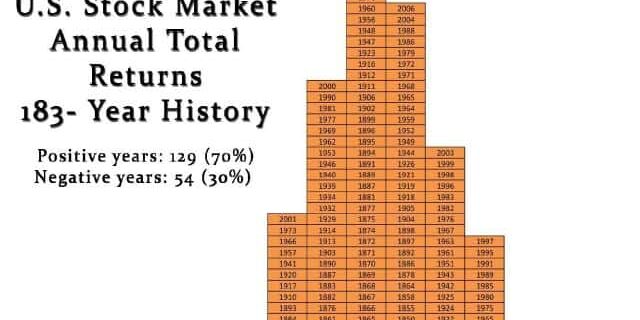Net Worth Update September 2015 – Nobleea the Oil and Gas Engineer (+3.82%)
Welcome to the Million Dollar Journey September 2015 Net Worth Update – Team MDJ edition. A select group of readers were selected to be part of Team MDJ which was conceived after the million dollar net worth milestone was achieved in June 2014. Nobleea – the Oil and Gas Engineer, was selected as a team member and will post net worth updates on a quarterly basis. Here is more about Nobleea.
- Name: nobleea
- Age: 37
- Net Worth: $776,295
- Day Job: Engineering manager at oilfield services company, Teacher (wife)
- Family Income: $145,000 (main job), $10,000 (part time job), $70,000 (wife main job), $10,000 (wife part time job)
- Goals: Million dollar family net worth before 40, Retirement from primary job at 50 (for me)
- Notes: Owns primary house. Owns tear down house across the street. (to be torn down for new family home)
We live in Edmonton where incomes are (still) high and housing prices are fairly reasonable. Some may roll their eyes at the high family income and say that a million dollar journey is going to be pretty easy. I have a plan to retire at 50 and pursue other things. My wife will likely continue working until it makes sense to retire with her DB pension as the penalties for early retirement are pretty severe. We started the process to purchase pension service from her maternity leave last year and that should be complete next month. We are in the process of building our new family home on a tear down lot across the street from our current home with an expected occupancy date some time in Sept 2016.
I try to keep our banking cash balances as low as possible and want every spare dollar going towards debt repayment. I would like to think our living expenses are low relative to our income. We have tried hard to avoid most lifestyle inflation. We do splurge on travel though it is not luxury travel.
We have a few goals for this year including opening a TFSA for both of us and funding with a minimum of $2K each (complete), signing up for additional term life insurance for both of us to top up that which is included in our group plans, reduce our HELOC balance by 60K. The TFSA is about 75% in couch potato ETF’s and the remainder in individual Canadian stocks.
Since our update last quarter, we have received financing approval on our new home as a construction draw mortgage. It also came with options for a $25K personal LOC and a complete refinance/equity take out on our current home, should we need to funds to complete construction. We have received full permits for the new home, and we should be locked up by the time the snow settles. Included in the permits is approval for a 650 sq ft, 1 BR suite above the detached garage. This is a new option in Edmonton. The market rent is still a bit of an unknown for these garage suites, but ours will be a more premium product with 11′ vaulted ceilings and an open floor plan. Expected rent is between $900-$1150/month. The incremental cost for the suite is $70,000.
We are likely going to go ahead with the equity take out on our current home to finance most of the new home construction while leaving any unneeded cash in a HISA. Our chosen builder requires monthly payments for bills incurred during that month, but the construction draw mortgage will only allow 4 draws. Since the construction should take just over a year, this results in a cash flow issue. Additionally, the first draw on the construction mortgage has to buy out the mortgage on the tear down lot. All while not exceeding 80% LTV on the appraised value of the semi-built structure at that time. Thus the need for a buffer of cash to cover construction costs between draws.
I expect that once everything is completed and we’ve moved in and sold our current home, we’ll be left with a mortgage of between 575-610K. That is a big number but is still around 2.5X our salary and 50-60% LTV. I hope to have a combined TFSA balance of around 100K at that time as well. We will see at that time whether we ramp up our focus on debt repayment again, or whether we focus on building our TFSA and non-registered investments in preparation for early retirement. Likely the latter, but this will be partially driven by interest rates.
On to the net worth numbers (Quarter/Quarter):
Assets: $1,169,632 (+1.44%)
- Cash: $3,043 (+50%)
- Registered/Retirement Investment Accounts (RRSP): $153,043 (+1.0%)
- Tax Free Savings Accounts (TFSA): $3,964
- Defined Benefit Pension: $94,550 (+3.9%)
- Non-Registered Investment Accounts: $0 (Closed)
- Principal Residence: $458,000 (+0.00%)
- Tear Down Property: $385,000 (+2.67%)
- Vehicles/Other: $56,032 (-0.3%)
Liabilities: $393,337 (-3.1%)
- Tear Down Mortgage: $289,294 (-1.4%)
- HELOC: $102,943 (-1.4%)
- Credit Cards: $1,100
Total Net Worth: $776,295 (+3.82%)
- Started 2015 with Net Worth: $717,634
- Year to Date Gain/Loss: +8.2%
Some quick notes and explanations to common questions:
The Cash
Cash includes bank account balances in two accounts, plus any gift card balances. We try to keep as little money in bank accounts as possible and make mortgage prepayments with it instead. We use cash flow modeling to predict the maximum amount we can put towards debt today without having a negative balance in the future, taking all one time or non-regular bills in to account.
Loans and Credit Cards
The credit cards are paid off in full every month with no interest due. We put all our expenses on credit cards for points and cash back. As this can be a substantial amount some months, I believe it needs to have a line item in your monthly net worth as it is a liability at that snapshot in time.
Savings
TFSA’s have just started as all spare cash has been going against the mortgage. Transferring the non-registered investments over will affect the tax deductibility of some of the HELOC.
Real Estate
Our primary residence was purchased in 2008 for $355K. We have put in $110K in DIY renovations since then in a complete overhaul. The house value shown here is based on those two numbers and is conservative relative to what similar homes in the area sell for. As part of our financing for the new house, our home was appraised by the bank at $480K which lines up well with the estimate above. This is available as a refinance equity take out, should we need additional funds to complete the construction.
Our ‘tear down’ is across the street and was purchased in 2014 for the lot, purchase price $375K. The next 2 years will be a mess with construction draw mortgages, HELOC balances for some construction costs, messy accounting for a rental that was effectively disposed of after 7 months of rent. The value of the property includes lot purchase price plus any monies paid to the builder this far.
Pension/Investments
My wife has a DB pension as a teacher. The balance shown is the termination benefit should she quit from her position tomorrow, net of any taxes. I have a matching RRSP plan through my work. Combined with CPP, we are not worried about retirement income, it’s just a matter of timing. We plan on contributing to my RRSP in order to get the full match but no more, then max out TFSA for investments, and then non-registered investments.
We have pretty substantial unused RRSP contribution room and will likely never use it. Perhaps in the event of a large capital gain, we may contribute some to offset the capital gain taxes. Not listed on the net worth values is our daughter’s RESP, which has a balance of about $5700. We plan on contributing enough every year to get the full CESG grant. The RESP is invested in TD e-series funds in a couch potato portfolio as a family plan.
Vehicles/Other
Just over half of this amount is vehicles. We have a two 2013 model year vehicles, one purchased new, one purchased used. I depreciate their value every month in net worth updates to keep it at just above wholesale value. The two vehicles combined cost us $250/mo in depreciation and repairs. I find that reasonable considering it would be hard to lease a single small vehicle for that price. The “Other” refers to fairly extensive photography equipment (part time business), sporting equipment and personal property.
I've Completed My Million Dollar Journey. Let Me Guide You Through Yours!
Sign up below to get a copy of our free eBook: Can I Retire Yet?




Hey Nobleea.
Great update. Happy that the current Alberta situation have not been effecting you directly. Good luck on your new home.
MOA,
Yes, we are thinking 300K term life for each of us is what would be required. 10 or 15yr term should be all that’s required until we’re self insured. It’s on the schedule to get arranged in the next couple of months.
Killer work.
With that income, if you can start maxing out the TFSAs ($20k per year), and do this until age 50, you’ll be cooking with gas…
That DB plan is golden. Even if she can work about 25 years, that will form her/your base for “retirement” expenses and you can do whatever you wish with the TFSA, RRSP income generated in these accounts and not touch the capital.
Absolutely some term life is necessary. Own it until you can self-insure, which is likely a good 10-year term for you. Given you are young, consider a 20-year term life and then avoid owning life insurance ever again.
Good luck!
Thanks for the comment. You are correct in that my wife’s job is likely a bit more secure than mine is. The flip side is that mine would come with a healthy severance and hers would not. Once the new house is finished and the old one sold, yes, I believe we could survive on just her salary if need be. Wouldn’t be any TFSA’s or RESPs or travel though. It’s definitely something I’ve thought a lot about as we sign all these loan documents and contracts.
I prefer TFSA’s over RRSPs at the moment since my RRSP will be healthy from work with matched contributions, and if I do an early retirement as planned, a TFSA is preferable. The plan is to draw down the TFSA between late 40’s and late 60’s, and then work on the RRSP.
My wife has a small RRSP, smaller still now that we have transferred some of it to buy back her pension from maternity leave. We won’t be working on an RRSP for her, since as you mention, the pension should be good. But TFSA’s will certainly be a focus – why not? We think the pension will be the splurge money. My RRSPs, our TFSAs/non registered investments, CPP, and OAS (if applicable) will be enough to cover our essentials for a middle income lifestyle.
You should have no problem meeting your $1 million goal by age forty! With over $200 000 of combined income, you are the envy of most Canadians. I’d maximize RRSP’s over TFSA’s since your income bracket is so high. I’d sock away more of an emergency fund. Your job is likely less secure than your wife’s. Could you live off her income alone? If you can, then an emergency fund may not be as necessary, and pre-payment on mortgages may be the way to go.
You probably don’t have to worry too much about a TFSA or RRSP for your wife. If she is a public school teacher, her defined benefit pension will likely be very sweet. Anything else will be a bonus. But then, maybe you’ll want to splurge a little in your retirement?
Anyway, good luck! And congrats on your great successes to date!